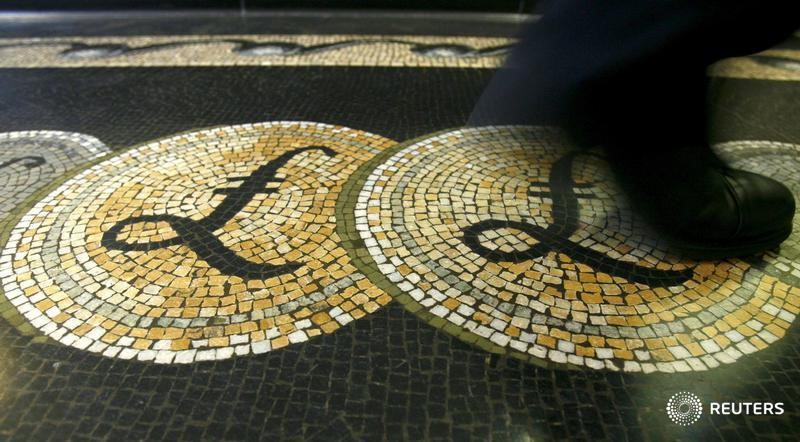By Anirban Nag
LONDON (Reuters) - Sterling sank 10 percent in value to its weakest since before the 1985 Plaza Accord on Friday after Britain voted to leave the European Union, triggering a global rush of capital into the traditional security of the yen and the Swiss franc.
Alongside the biggest moves in the pound in living memory the euro, which is expected to struggle given worries about the impact of a "Brexit" on the euro zone economy, also dropped sharply against the dollar.
The franc surged to its strongest in almost a year against the euro and the yen to its highest in more than two years. The Swiss National Bank became the first major central bank to step in to drive down the value of the franc, while speculation that the Bank of Japan could also act limited the yen's advance.
Japan said it would respond to "extremely nervous" exchange-rate moves, signaling a readiness to intervene.
The pound fell more than 10 percent to $1.3228
By 0830 GMT, it had recovered from those lows to trade at $1.3770, with traders citing Bank of England chief Mark Carney's comments that the central bank stood ready to provide extra support as a reason for the bounce.
Earlier, British Prime Minister David Cameron, who campaigned to stay in the EU said he will step down by October. Analysts expect months of economic and political turmoil which will dwarf the pressure on UK markets following sterling's "Black Wednesday" in 1992 when Britain was forced out of the pre-euro Exchange Rate Mechanism.
"The UK has voted to leave the EU and this decision hits the British economy at a difficult time," said Hans Redeker, head of currency strategy at Morgan Stanley (NYSE:MS), adding investors' attention will shift to Britain's large current account of deficit of 7 percent and economic growth is likely to weaken.
Morgan Stanley expects the pound to fall to between $1.25 and $1.30.
Leading UK bank HSBC also cut its quarter end and year-end forecasts for sterling. It expects sterling to fall to $1.25 by the end of third-quarter and then to $1.20 by the end of 2016. It also cut its forecast for the euro for the end of the year to $1.10 from $1.20 previously. [L8N19G0RR]
EURO LOWER
Sterling also fell to its lowest in two years against the euro, with some expecting it to edge towards parity in coming months. The euro rose more than 8 percent to 83.15 pence (EURGBP=R), hitting its highest level in more than two years.
Yet the euro was under pressure against most other currencies as investors worried Brexit could fuel anti-establishment movements in other European countries. A new election is planned in Spain on Sunday after an inconclusive vote last December.
The euro fell to $1.0912
Demand for the safe-haven yen has grown steadily with Brexit anxiety over the past month. The greenback dropped to as low as 99.00 yen, a fall of 6.7 percent, before gaining a semblance of stability to trade at 103 yen. That was the first time it had fallen below the 100 mark since late 2013.
The rise in the yen kept alive the risk of intervention by the Japanese and perhaps even coordinated intervention by the Group of Seven countries. Deputy finance ministers of G7 nations will hold a conference call at 1130 GMT on Friday to discuss Britain's decision, a source familiar with the matter said.

"We will have to see how serious they are about any possible coordinated intervention by the G7," said Yujiro Goto, currency strategist at Nomura. "While there is a risk of Japanese intervention, as long as dollar/yen remains above 100 yen chances are less."
(Additional reporting Ian Chua and Hideyuki Sano; Editing by Toby Chopra and Keith Weir)